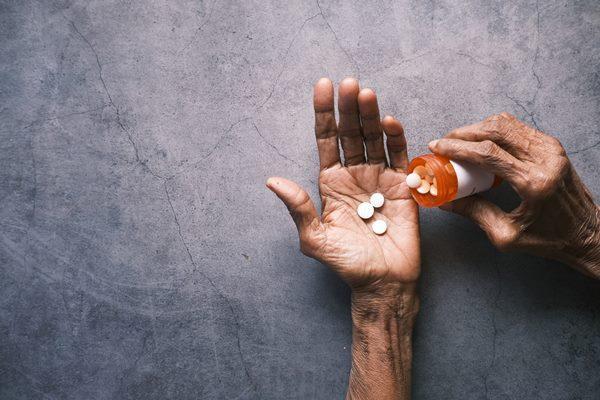Dentists will likely wish to reconsider the use of antibiotic prophylaxis in patients with prosthetic joints. The results of a new study challenge recommendations for patients with prosthetic joints undergoing invasive dental procedures.

A cohort study assessed the association between late prosthetic joint infection (LPI) in almost 8500 patients admitted to hospitals in England. Despite strong calls from orthopedic surgeons to prescribe antibiotics for pre-prophylaxis in these patients, the authors found no significant association between invasive dental procedures (IDPs) and subsequent joint infection.
“Despite the lack of evidence of a link between COI and PIPS, the lack of evidence of the effectiveness of antibiotic prophylaxis, despite the cost of providing antibiotic prophylaxis and the risk of both adverse drug reactions and the potential for increased antibiotic resistance, it has been common practice for decades,” wrote a team of researchers led by Dr Martin Thornhill, professor of translational health research in dentistry at the University of Sheffield.
The study analyzed National Health Service data from 9,427 patients admitted to hospitals in England with PIPS between 25 December 2011 and 31 March 2017. The researchers chose the population of England because surgeons in that country have never recommended antibiotic prophylaxis to prevent this type of infection.
About a quarter of patients had hip prostheses, 34% had knee prostheses, 3% had other prostheses, and 39% had an unknown type of prosthesis. All patients had dental records that documented ISP, defined as extraction, scaling, or endodontic treatment, and noninvasive procedures, defined as dental examination with or without radiographs.
The researchers then analyzed whether COIs affected the incidence of joint infections by comparing the number of COIs in the three months before hospital admission with a joint infection to the number of procedures in the previous 12 months. They chose three months as the cutoff because 90% of infections associated with dental procedures occur within this period.
In their analysis, the researchers found no significant association between invasive dental procedures (IDP) and subsequent late prosthetic joint infection (LPI). In fact, they reported a lower incidence of invasive dental procedures (IDPs) in the three months before hospitalization.
In addition, only 9% of infections leading to hospitalization were caused by oral streptococci. The remaining infections were either mixed infections (13%) or caused by staphylococci (53%), non-oral streptococci (5%), or other organisms (20%).
“We did not find an increase in the incidence of late prosthetic joint infections due to invasive dental procedures; if anything, there was a decrease, but not an increase,” the authors write. “This suggests that the few PIPS caused by oral streptococci were most likely the result of daily oral manipulations such as brushing, flossing and chewing, especially in patients with poor oral hygiene, rather than from ISP”.
The study did have some limitations. The data did not differentiate between early and late prosthetic joint infections, and the authors noted that the 9% incidence of oral streptococcal infections is likely an overestimation.
Based on their findings, the authors refuted the need for antibiotic prophylaxis before dental procedures in patients with prosthetic joints, stating that there is no evidence to support this practice. However, they did highlight the need for good oral hygiene.
“The use of antibiotic prophylaxis continues to pose a large and unnecessary financial burden on individuals and the healthcare system, as well as unnecessary risk to patients from adverse drug reactions and the potential development of antibiotic-resistant bacteria, and must stop,” the authors write. “However, our data suggests that maintaining good oral hygiene may be important in preventing the small number of PIPS that involve oral bacteria.”
